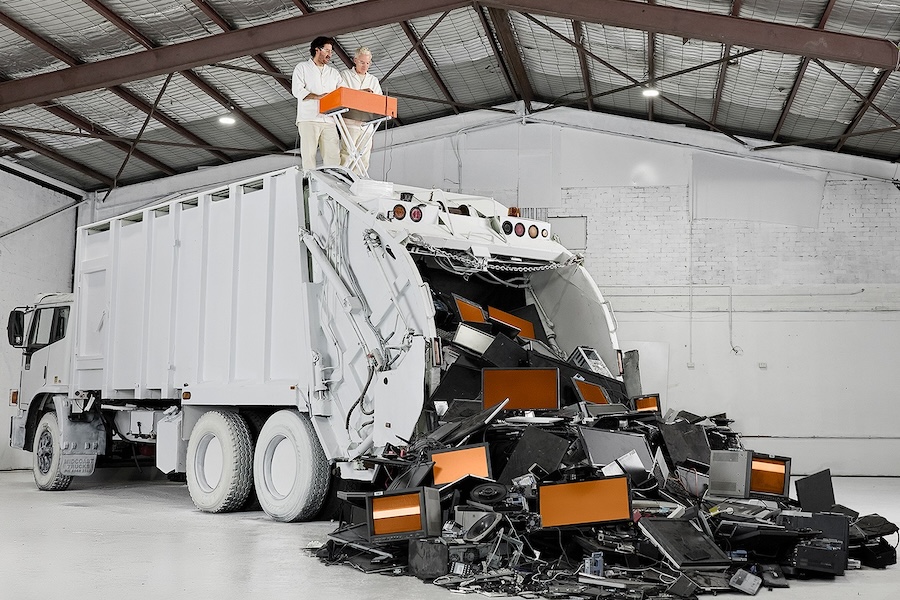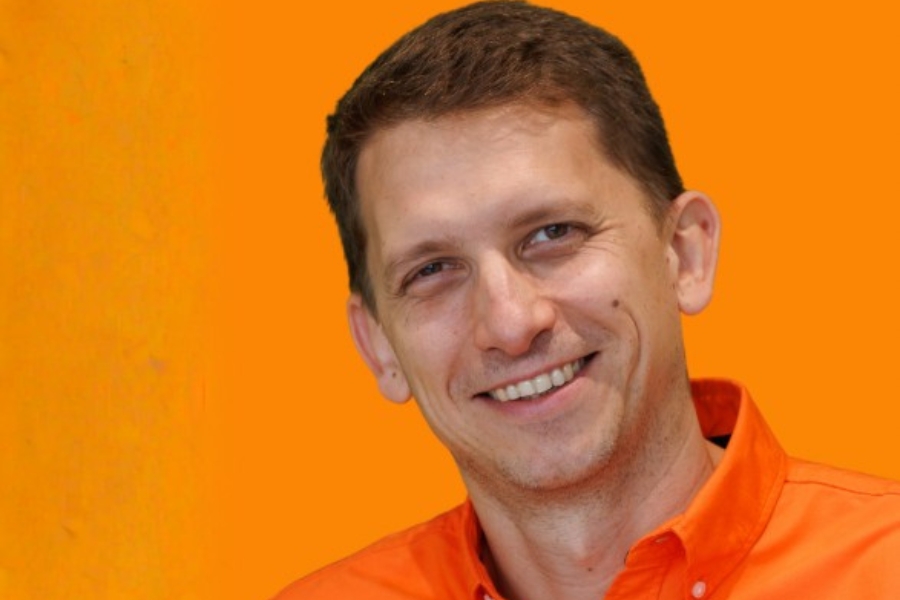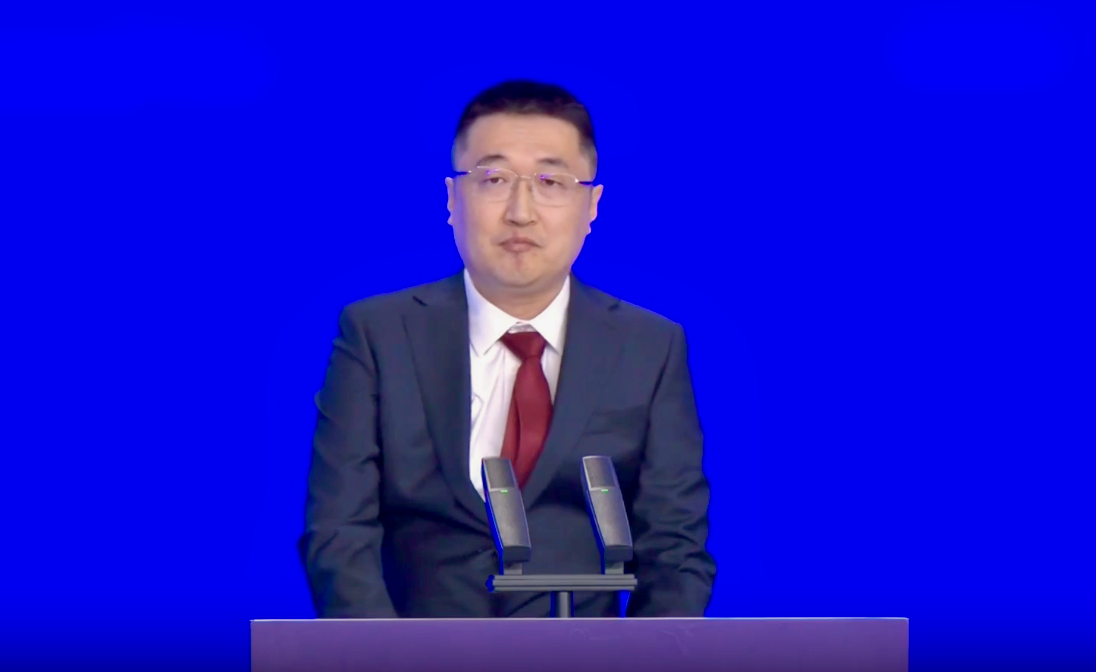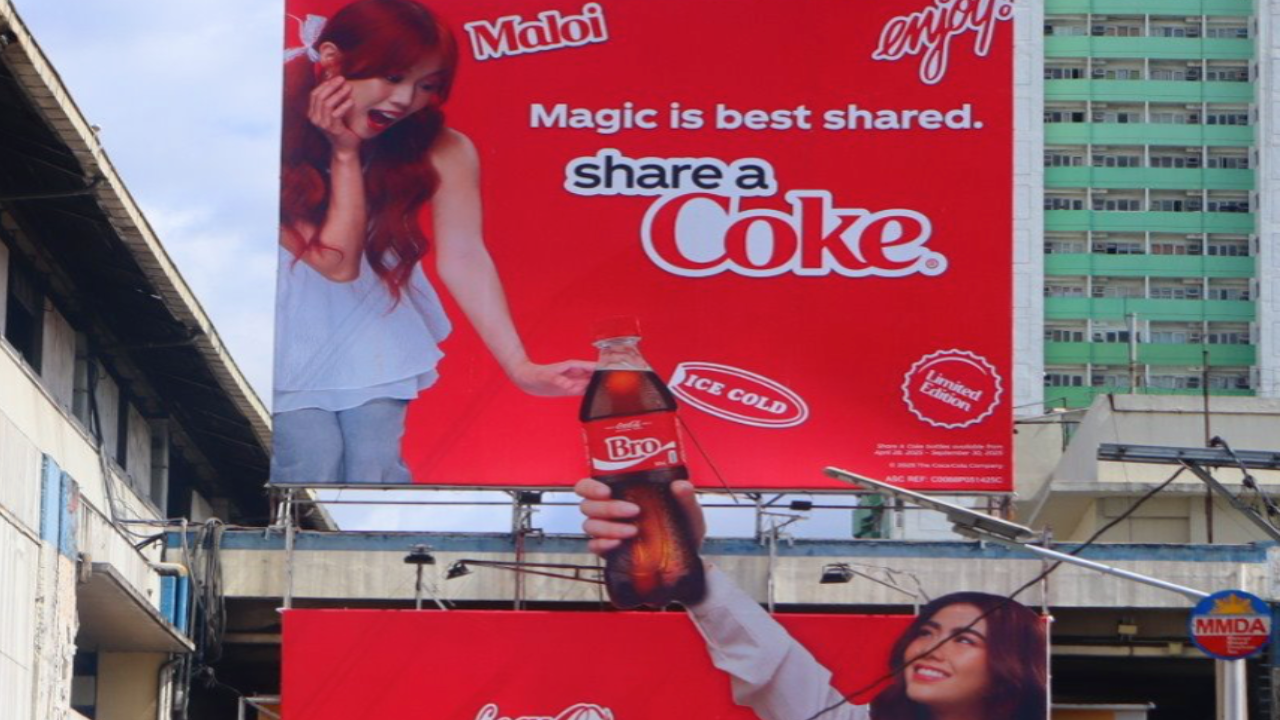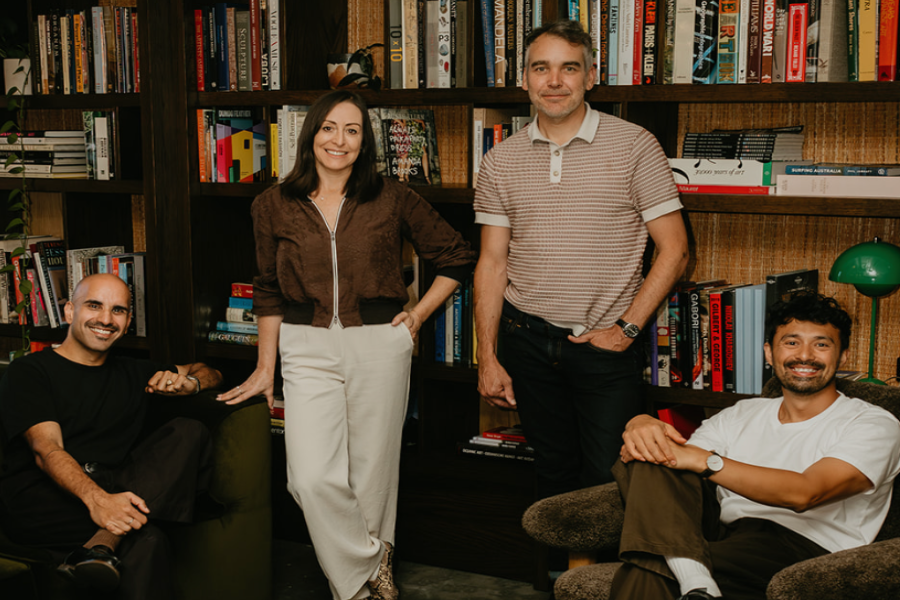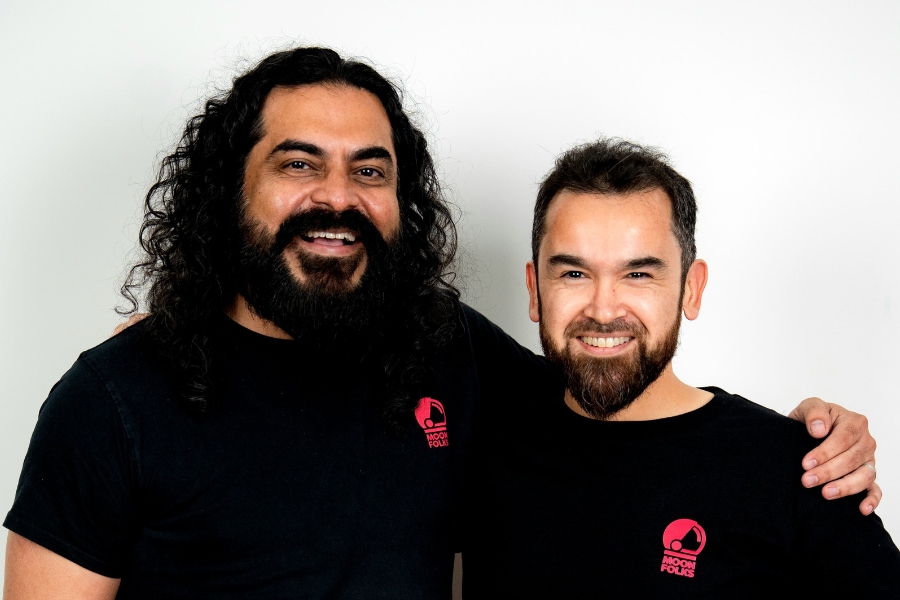Editor's note: Jay Morgan attended SXSW in mid-March and contributed one on-the-spot reaction for Campaign Asia-Pacific. This long-read piece took a bit longer to percolate out of his brain and through our editing process, because the topic is much bigger than the conference.
Every year at SXSW amongst the thousands of talks and side events there are a handful of subjects that float to the top. At the beginning of the week it’s not immediately clear which are the salient themes. But on the third day this year, one topic became the defining thought of the festival.
On a side note, the thing I love about SXSW is that apart from showcasing some exceptional talent and thought leaders across a diverse cross-section of technology, marketing, brands and politics, and as opposed to almost every other festival, it focuses on what the future 12 months will bring versus celebrating the past 12 months. I’m obsessed with the future of everything, so for me it’s a pivotal date in the calendar every year. My approach is to take in as many non-marketing and advertising talks as possible so that I’m drawing inspiration from outside the industry. History has taught me the future of our industry comes from outside not within.
This year’s biggest topic was AI—artificial intelligence or machine learning, essentially intelligent computer systems that can make decisions by themselves. There’s a significant shift about to happen in the way brands interact with their customers, which I’ll get to shortly. But first let me cover off the basics of machine learning. Also before you jump to conclusions about Terminators and Skynets and the end of human existence, let’s explore what the experts have to say.
“Take X, add AI."
|
Kevin Kelly, founder and long-time writer for WIRED and author of new book Inevitable: Understanding the 12 Technological Forces That Will Shape Our Future, confessed that for many years the future of AI had troubled him, as it does many of us.
Recently however, he has decided that when it’s clear a technology is inevitable, it is far better to embrace it and play an active part in steering it. Instead of taking yourself out of the equation, it’s far better to play an active role in understanding and steering the technology to right outcome. And let’s be honest, it’s an inevitable technology because there are still so many tasks that you’d prefer were automated. Do you really love doing your expenses every month? Can’t get enough of Timesheets? How about driving long distance? I’d personally be delighted with a robot kitchen helper that chopped onions for me without the shedding of a single tear. And while we're at it could you keep stirring that sauce for me?
Kelly posited that the future won’t be us versus machines but more that we will work side by side to accomplish more. AI becomes an integral part of work and life. He believes one of the most valuable skills in the future will be working alongside AI systems, teaching them and programming them to tackle the tasks that can be automated or done more efficiently. Robots will create new jobs for humans, ones where we tackle inefficient tasks like science and innovation which are incredibly inefficient pursuits. Yes robots will take jobs away from humans but they should. Kelly proclaimed we’ll be embarrassed when we look back in decades to come of the tasks we used to do ourselves.
If you had told people a few hundred years ago that most people won’t farm or have a physical trades in the future they would have thought you were crazy.
Kelly has coined the term ‘The Cognified Future’, and says that the next 10,000 startups will take X problem and add AI.
“Anything humans can do in 100 milliseconds, computers can do now, if not better."
|
The next talk that highlighted machine learning was from George Hotz, a young software engineer who came to fame when he was only 17 for being the first to hack the iPhone. Since then he’s worked for many of the big tech companies. But more recently he was approached by Elon Musk of Tesla Motors to create a self-driving system for Tesla's all-electric car. The deal didn’t work out, and in reaction Hotz decided to take on Google and Tesla at their own game, by himself. Cut to 12 months later, and he has managed to create a self-driving system on a Honda Acura platform.
Hotz’s hypothesised that the big guys had approached it all wrong. Instead of manually modelling all the concepts and systems that are required to drive a car on the road and not crash—what lanes are, acceleration, deceleration, steering, changing lanes, overtaking, merging, parking—Hotz took a very different but seemingly obvious approach. Using simple and inexpensive sensors and cameras, he built a 'supervised learning' system; the system was programmed to watch and learn what it observed a human driver doing.
His theory is that the car doesn’t need to know that it’s driving, it just needs to observe and learn the behaviour of a human driver, then repeat it.
This is a guy who has built this system by himself out of his garage in San Francisco, and claims he will have a self-driving product available by the end of the year for around $1,000. Some very smart people think he might just be able to pull it off, as venture capital firm Andreessen | Horowitz recently invested in Hotz’s startup.
Supervised learning is one study of AI that offers huge potential for the future. Think about all the tasks you do on a daily basis that could be automated with this technology. Imagine a robot shadow that you have observe a task repeatedly. Once it has enough knowledge, you let it perform the task without your supervision. As Hotz points out, the machine has no understanding or concept of the context or why it’s doing what it’s doing. It’s simply following the instructions you gave it. It doesn’t sound like the scary Terminator future we all worry about, right?. It actually sounds awesome!
"Most of the knowledge in the world in the future is going to be extracted by machines and will reside in machines”
|
The final talk I attended on machine learning tied everything together nicely. Professor Pedro Domingos of the University of Washington, a world leader in the field of artificial intelligence and the author of Master Algorithm: How the Quest for the Ultimate Learning Machine Will Remake our World, gave us the fundamentals for the key areas of study.
Domingos opened with a broad question, ‘Where does knowledge come from? How do we discover it?’ Until now there have been three waves: through evolution, through experience and through culture. He proposed that the future wave of knowledge discovery will be through computers.
The professor has defined the way machines learn into five core principles:
- Fill in gaps in existing knowledge
- Emulate the brain
- Simulate Evolution
- Systematically reduce uncertainty
- Notice similarities between old and new.
In his SXSW presentation, Domingos described how no single method can universally solve every problem we need machines solve, and talked about the need for a 'Master Algorithm'—a universal solver.
I know what you’re thinking: A machine that can solve any problem sounds a lot like a self-thinking Terminator-like terror, right? This imaginary future and the plot of many Hollywood movies is based on the concept of a singularity—a self-thinking, self-aware machine that, once aware, increases in knowledge and capability exponentially into infinity. Then rockets fly, and humans are erased from history.
Sounds grim. But most experts, including Domingos, say this is an incredibly improbable outcome. During question time he was asked about the chance of AI running away from us and becoming a singularity. His response is the best answer I’ve heard in this debate. As there has never been an observed system of infinity anywhere in our universe, and as everything is relative, we can safely assume that a machine that we create becoming a singularity is an impossibility.
So no killer robots trying to exterminate the human race then.
Bringing it back to today
Most of you don’t know it, but you’re already using machine-learning systems every single day.
The engine that drives Netflix’s excellent recommendation system is a machine-learning system. It observes what you watch and makes recommendations based on your user profile and what other users like you have watched. Exactly like when you buy someone that perfect gift because you know what they like and don’t like.
Just the other week, Facebook announced that it was going to open up its Messenger app to developers to create app bots. What’s the point? Imagine you were able to talk to your favourite brands, from your favourite pizza joint to your bank, through a conversation interface like Messenger. Say it’s Friday night and I want to order a pizza. I open up Messenger and talk to Domino's, just like one of my friends:
Me: “Hey there!"
Domino's: “Hey Jay, how’s it going dude, hungry?"
Me: “You know it!"
Domino's: “Sweet, we got what you need, what’ll be, same as last Friday night, the large pepperoni and mushroom?"
Me: “That’s the one, and add some garlic bread too"
Domino's: “Easy as! Anything else, we’ve got a sweet deal on desserts tonight"
Me: “Nah, trying to watch the waist line, you know"
Domino's: “I hear ya buddy, no worries, pizza and garlic bread will be ready in 15 mins, catch ya later"
If that’s my experience with Domino's, why would I ever use their dedicated app, website or old-school phone number again?
And it’s all made possible by through AI and machine learning. And because it’s an ever-learning system it will get better and better at knowing what I like and meeting my needs better, just like a best friend, but maybe even better. All of this interaction completely handled by a bot with artificial intelligence and completely automated. No human was involved on the client-side except the pizza maker (and his days are numbered too).
What AI helps businesses do is focus their resources on the challenges and thinking that can’t be automated, like coming up with new promotions, improving flavour combinations, dreaming up new brand experiences—all tasks that are currently really inefficient.
People are calling this the rise of 'conversational commerce', and it’s going to the biggest shift in the way we interact with brands since we were able to buy things online when the internet launched.
This kind of commerce may not suit everyone; some people will still want to talk to a real person over the phone. But think about the number of users who are completely comfortable conversing like this. In fact the data indicates they prefer it: 800 million Facebook Messenger users, 1 billion WhatsApp users (also owned by Facebook), more than 400 million Instagram users (also owned by Facebook). These audiences are completely comfortable using conversational commerce, in fact they prefer it.
The impact on brand interactions that this new bot-based world will introduce cannot be overestimated.
Brands, now is the time to invest in understanding the benefits of AI and be part of steering it rather than removing yourself from the equation.
Agencies should be sanctioning someone internally to learn how to utilise AI to create smarter solutions for clients.
AI will impact every area of our lives in the most profound ways. It’s inevitable, but it doesn’t have to be scary. I’ve decided to take the Kevin Kelly approach and embrace it so I can be part of steering it, I encourage you to join us, it is a pretty exciting time to be alive.
 Jay Morgan is group digital creative director at J. Walter Thompson in Sydney Jay Morgan is group digital creative director at J. Walter Thompson in Sydney |
Main image from the film Ex Machina, which is excellent despite its unrealistic (so far) depiction of AI.


